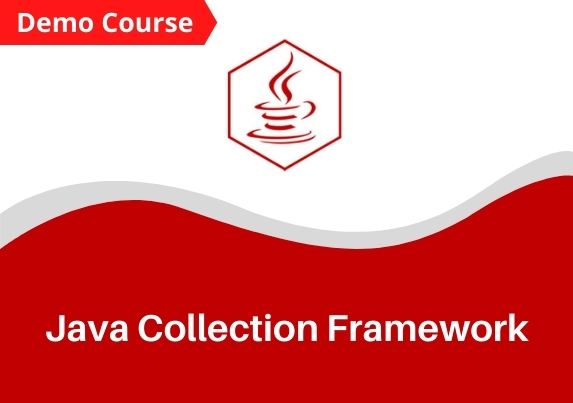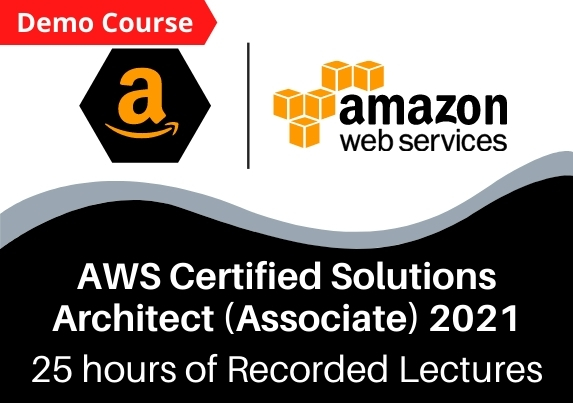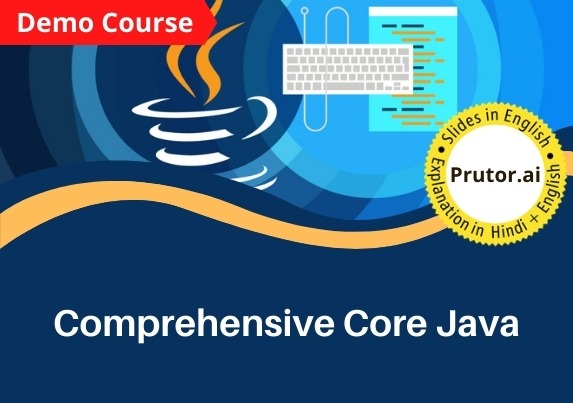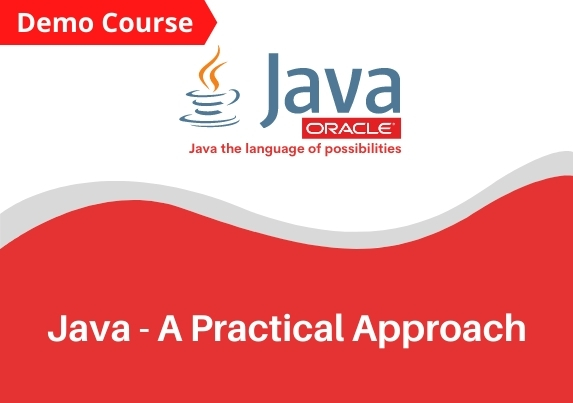About the course
This course will teach you how to use the data structures to organize data in the program. This course enables you to play around with data and organize the data using the collection classes and interfaces. In this course, you will go into more detail as you delve into the interface and class hierarchy for collections. You will be able to work with a List interface, Map interface, and Set interface along with the classes that implement these interfaces, such as ArrayList, LinkedList, HashMap, SortedMap, HashSet, Tree set, etc. The course also covers the use of the Iterator class of the Iterable interface which was later replaced by the enhanced for loop.
Learning Outcomes
After completing this course, you will be able to:
- Use the type hierarchy in the Collections Framework of Java.
- Write code which uses iterators, either directly or indirectly using the enhanced for loop.
- Use Comparator objects, and write code to implement your own Comparator objects
- Understand and use Map types in Java.
- Boost your hireability through innovative and independent learning.
- Get a certificate on successful completion of the course.
Target Audience
The course can be taken by:
Students: All students who are pursuing professional graduate/post-graduate courses related to computer science and engineering or data science.
Teachers/Faculties: All computer science and engineering teachers/faculties.
Professionals: All working professionals from computer science / IT / Data Science domain.
Why learn Java Collections Framework?
As per the official website of Java, the most important part of the core Java platform is the collections framework. The collections framework is a unified architecture, which represents and manipulates collections, enables collections to be modified independently of implementation details. Learning Java collections framework decreases the efforts required in programming as it provides data structures and algorithms, and thus the programmer does not have to put effort into writing them. It enables interoperability between unrelated APIs as it establishes a common language to pass collections back and forth.
A fresher with knowledge of core Java and Java collections framework can earn up to 4-5 lakhs p.a. With experience and recognized certifications, Java Programmers can earn as high as 12-13 lakhs p.a. Most of the top MNCs, as well as start-ups, are hunting for Java Professionals who have sound knowledge of core Java concepts including the collections framework. Whether it is Infosys, Accenture, IBM, TCS, demand for Java Professionals is on a rise! Google, Amazon, LinkedIn, Blogger, eBay, Twitter, all use Java to build useful applications.
Course Features
- 24X7 Access: You can view lectures at your own convenience.
- Online lectures: 4 hours of online lectures with high-quality videos.
- Updated Quality content: Content is the latest and gets updated regularly to meet the current industry demands.
Test & Evaluation
1. During the program, the participants will have to take all the assignments given to them for better learning.
2. At the end of the program, a final assessment will be conducted.
Certification
1. All successful participants will be provided with a certificate of completion (except for demo courses).
2. Students who do not complete the course / leave it midway will not be awarded any certificate.
Topics to be covered
- ArrayList - Java Collection Framework Part 1
This is only a demo course. The full course can be bought here
- LinkedList and the List Interface - Java Collections Framework Part 2
- HashMap - Java Collection Framework Part 3
- Sorted Maps and the Map Interface - Java Collection Framework Part 4
- Sets - Java Collection Framework Part 5
- Using Your Own Objects in Sets and Maps - Java Collection Framework Part 6
- Sorting Lists using Comparators - Java Collection Framework Part 7
- Natural Ordering and the Comparable Interface - Java Collection Framework Part 8
- Queues - Java Collection Framework Part 9
- Using Iterators - Java Collections Framework Part 10
- Implementing Iterable; Downloading Web Pages - Java Collection Framework Part 11
- Deciding Which Java Collection to Use - Java Collection Framework Part 12
- Complex Data Structures - Java Collections Framework Part 13
- Java Collection Framework - Final Quiz











